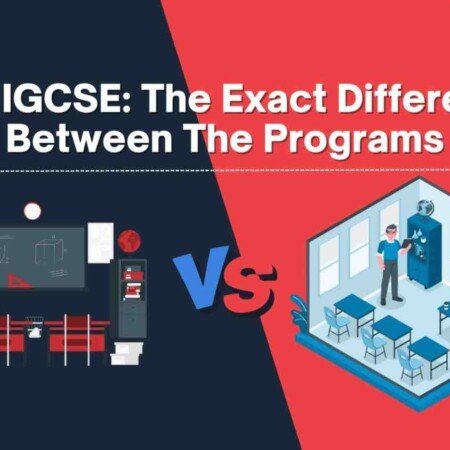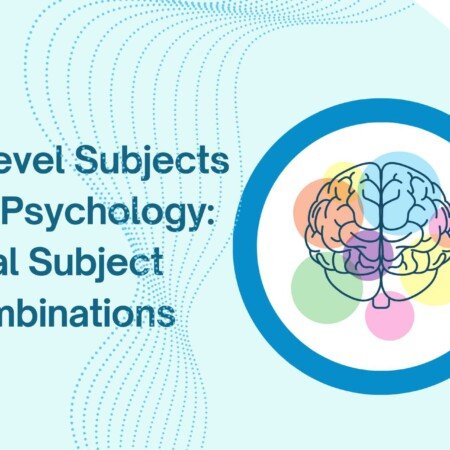The International General Certificate of Secondary Education (IGCSE) program offers a diverse range of subjects that are recognized globally by universities and employers alike. This program is designed to provide students with a comprehensive education that emphasizes critical thinking, practical skills, and academic rigor. With over 70 subjects to choose from, IGCSE provides students with the flexibility to tailor their education to their interests and career aspirations.
In this blog, we will take a closer look at the different IGCSE subjects and what they entail. From the core subjects of English, Mathematics, and Science to the technical and vocational subjects, we will provide an overview of the curriculum, learning objectives, and assessment criteria. Whether you are a student considering IGCSE or a parent looking to support your child’s academic journey, this blog will help you understand the IGCSE program and the range of subjects available.
Moreover, Ignite Training Institute offers comprehensive tutoring support for IGCSE. Connect with our expert education consultants today!
Table of Contents
- Introduction: Overview Of The IGCSE Qualifications
- How Many IGCSE Subjects Are Required?
- What Are The Compulsory Subjects For IGCSE?
- Core IGCSE Subjects
- Business & Technical IGCSE Subjects
- Social Studies IGCSE Subjects
- Creative Arts IGCSE Subjects
- 5 Tips For Success In IGCSE Subjects
- 5 Important Facts To Know
- FAQs
- Takeaway
Introduction: Overview Of The IGCSE Qualifications
The International General Certificate of Secondary Education, or IGCSE, is an internationally recognized qualification for secondary school students aged 14-16. It is a rigorous program of study that prepares students for further education and the workforce. IGCSE is administered by the Cambridge Assessment International Education, a division of the University of Cambridge, and is widely recognized by universities and employers worldwide.
The IGCSE program offers a broad range of subjects, including core subjects such as English, mathematics, science, business and technical subjects, humanities, creative arts, and physical education. The program allows students to tailor their studies to their interests and strengths, providing a well-rounded education and preparing them for the challenges of higher education and the workforce. The IGCSE program has a global reputation for academic excellence and is an excellent choice for students seeking an internationally recognized qualification.
Related: IGCSE Grades Explained & Busting 5 Common Misconceptions
How Many IGCSE Subjects Are Required?
The number of IGCSE subjects required for completion of the program depends on the student’s school and country requirements. However, the minimum number of IGCSE subjects required is 5, including English and Mathematics. These two subjects are considered core subjects and are compulsory for all students. In addition to the core subjects, students are required to choose three additional subjects from a range of options.
Most schools offer a broad range of IGCSE subjects to choose from, and students typically choose between six to ten subjects. This allows them to tailor their studies to their interests and strengths, while also ensuring they meet the minimum requirements for the program. Some schools may also offer additional IGCSE subjects as optional courses or extracurricular activities.
Overall, the number of IGCSE subjects required depends on the student’s individual needs and goals, but it is recommended to take a minimum of five subjects to earn a well-rounded education and prepare for higher education or the workforce. Students can opt for anywhere between 6-10 subjects to extend the scope of future opportunities.
Related: IGCSE Exams 2023: Important Dates & How To Prepare Well
What Are The Compulsory Subjects For IGCSE?
There are two compulsory subjects for IGCSE – English and Mathematics. These two subjects are considered core subjects and are mandatory for all students. The purpose of these core subjects is to ensure that students develop strong communication and critical thinking skills, which are essential for success in all areas of life.
In addition to English and Mathematics, students are required to take at least three additional subjects from a range of options. These additional subjects are chosen based on the student’s interests and goals. Students can choose from a variety of subjects, including science, foreign languages, humanities, business and technical subjects, creative arts, and physical education. The variety of subjects available ensures that students receive a well-rounded education and are prepared for the challenges of higher education and the workforce.
Core IGCSE Subjects
The IGCSE program offers a broad range of subjects to choose from, including core subjects that are mandatory for all students. These core subjects are essential for building a strong foundation in key skills and knowledge areas.
The two core IGCSE subjects are English and Mathematics. These subjects are mandatory for all students and are designed to develop communication and critical thinking skills, as well as mathematical and problem-solving abilities. English is a key subject that focuses on reading, writing, and speaking skills, while Mathematics covers topics such as algebra, geometry, and statistics. Both subjects are important for success in all areas of life and are required for further education and the workforce.
In addition to English and Mathematics, there are other core subjects that are mandatory in some countries or schools. These include science subjects such as Physics, Chemistry, and Biology, as well as Social Studies and a second language. The core subjects are designed to provide a well-rounded education that prepares students for the challenges of higher education and the workforce. By completing these core subjects, students can earn an internationally recognized qualification that demonstrates their knowledge and skills to universities and employers worldwide.
Business & Technical IGCSE Subjects
In addition to core subjects, the IGCSE program offers a variety of Business and Technical subjects. These subjects are designed to prepare students for careers in business, technology, and engineering fields. Some of the popular Business & Technical subjects include Accounting, Business Studies, Information and Communication Technology (ICT), & Design & Technology.
Accounting teaches students financial principles and concepts, including how to prepare financial statements and analyze financial data. Business Studies covers various aspects of running a business, including management, marketing, and finance. ICT teaches students how to use computer technology to create, manage and analyze data and information. Design and Technology covers product design, engineering, and technology.
These subjects are essential for students who want to pursue careers in fields such as finance, business, engineering, or technology. They provide students with valuable skills and knowledge that are necessary for success in the modern workforce. By choosing Business and Technical subjects, students can gain a competitive edge in their future careers and increase their chances of success.
Social Studies IGCSE Subjects
Social Studies is an important IGCSE subject that covers a range of topics related to human societies and the world around us. This subject is designed to help students understand and analyze social, political, and economic issues and their impact on different societies. Social Studies includes subjects such as History, Geography, and Economics, among others.
By studying these subjects, students gain a deeper understanding of the world and its complex interrelationships, as well as develop critical thinking and analytical skills. The knowledge and skills gained through Social Studies are essential for success in various fields, including politics, economics, education, and journalism.
Creative Arts IGCSE Subjects
Creative Arts is an IGCSE subject that offers students the opportunity to develop their creativity and express themselves through various forms of art. This subject covers a range of disciplines such as music, drama, visual arts, and media studies. By studying Creative Arts, students learn about different artistic techniques and styles, as well as how to create and analyze works of art. This subject is essential for students who are interested in pursuing careers in the arts, such as music, theater, or visual arts.
Additionally, it helps students develop important skills such as creativity, self-expression, and critical thinking, which can be applied to various fields outside of the arts. Overall, Creative Arts is an important IGCSE subject that provides students with a well-rounded education that incorporates both technical skills and creativity.
5 Tips For Success In IGCSE Subjects
Preparing for IGCSE exams can be a daunting task, but with the right strategies, students can achieve success. Here are five tips for success in IGCSE subjects:
1. Develop A Study Schedule: Create a study schedule that covers all your subjects and set realistic goals for each day. This will help you stay on track and ensure that you cover all the necessary topics.
2. Practice Past Papers: Practicing past papers is an effective way to prepare for IGCSE exams. It helps you understand the format of the exam and identify any areas of weakness that require more attention.
3. Attend Classes Regularly: Attend classes regularly and engage actively in class discussions. This will help you understand the topics better and clarify any doubts you may have.
4. Seek Help When Needed: Don’t hesitate to seek help from teachers, tutors, or classmates if you need clarification on any topics. It’s important to address any areas of weakness before the exams.
5. Stay Motivated: Stay motivated and maintain a positive attitude toward your studies. Reward yourself for reaching your study goals and stay focused on your long-term goals.
5 Important Facts To Know
- It’s important to note that the main exam boards, such as CAIE and Edexcel, offer over 90 subjects, and while the list provided may not be comprehensive, it does include the most sought-after subjects.
- Some students opt to study up to 12 IGCSE subjects and even take courses outside of school to enhance their knowledge and profile for college applications.
- IGCSE courses are available to private candidates and homeschoolers as well.
- Schools and students have the flexibility to choose courses from any of the British Curriculum exam boards, including Edexcel, Cambridge, AQA, or OCR, as universities accept them equally.
- Exploring a wide range of subjects is highly recommended for students, as this will provide them with many options when selecting their A-level subjects. A-levels often define students’ career aspirations and choice of undergraduate courses, and students typically choose A-levels for the subjects they have already studied at the IGCSE level.
FAQs
1. How Many Subjects Are There In Igcse?
The IGCSE program offers a wide range of subjects to choose from, typically between 30-70 subjects.
2. Is IGCSE Harder Than CBSE?
While IGCSE places a greater emphasis on critical thinking and independent learning, CBSE focuses more on rote learning and theory. Ultimately, the level of difficulty depends on the student’s individual strengths and learning style.
3. What Are The 6 Subjects In IGCSE?
The six core subjects in IGCSE are English Language, Mathematics, Science, Foreign Language, Humanities and Social Science, and Creative, Technical, and Vocational.
Takeaway

In conclusion, the International General Certificate of Secondary Education (IGCSE) program offers a wide range of subjects that cater to the diverse interests and career aspirations of students. The program is recognized globally and provides students with a comprehensive education that emphasizes critical thinking, practical skills, and academic rigor.
As we have seen in this blog, the IGCSE program covers a broad range of subjects, from core subjects like English, Mathematics, and Science to business, social sciences, and creative arts. Students can choose subjects based on their interests, future career aspirations, and academic strengths.
Related
1. IGCSE VS GCSE: 5 Most Crucial Facts To Know In 2023
2. List Of Best-Reviewed IGCSE Schools In Dubai
3. The Beginner’s GCSE Guide: Everything You Need to Know
4. Cambridge IGCSE: Comprehensive Guide For Parents & Students
5. IGCSE VS CBSE: Ultimate Comparison With 6 Key Differences





